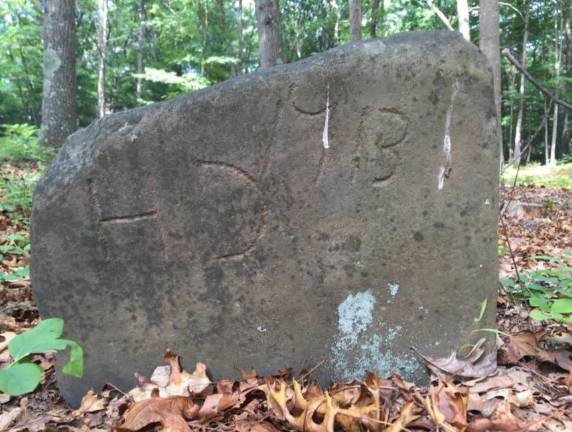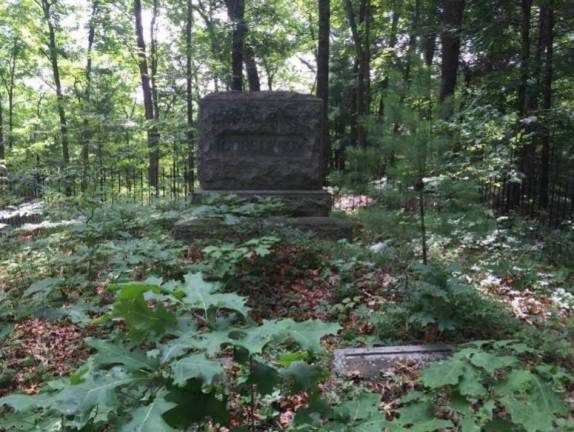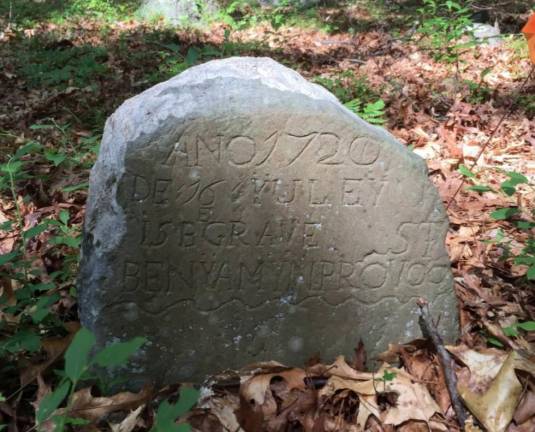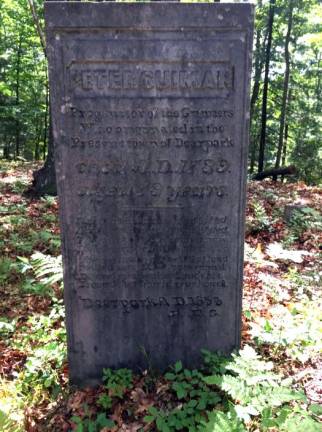Gumaer Cemetery, site of oldest European grave, recommended for historic registers




The Gumaer Cemetery in Godeffroy, N.Y., is among 22 properties in the state recommended this week to State and National Registers of Historic Places.
The cemetery, also known as Pioneer Knoll Cemetery, is perhaps the oldest burial ground used by European settlers within the bounds of present-day Orange County and is the sole surviving resource that documents the earliest settlement of the Peenpack Patent, granted by the English Crown in 1697 and the site of the present-day town of Deerpark.
The historic registry designation helps property owners revitalize sites, making them eligible for various public preservation programs and services.
The Gumaer Cemetery was already protected through the Gumaer Cemetery/Pioneer Cemetery Fund, funded by the Estate of Kenneth I. Gumaer Sr., DVM, through the Community Foundation of Sullivan and Orange Counties, according to Judy Gumaer Testa, Gumaer family historian, in the Minisink Valley Historical Society site (minisink.org).
"It had been a long standing desire of Dr. Gumaer that the final resting place of his ancestors...be perpetually preserved and maintained," she writes.
She said the Peenpack area is the oldest continuously inhabited inland European settlement in Orange County.
"This settlement evolved to become the American homesteads of the Swartwout, Gumaer, Cuddeback and Van Inwegen families, and has continued to be populated throughout the last three centuries and well into the 21st century," she writes.
She said "the earliest identifiable grave marker is circa 1720. Although the Peenpack settlement was present as early as 1690, an assumption can be made that earlier burials could be present, and it is also a fairly safe assumption that a majority of the remaining Patentees' burials are present as well. The main cemetery itself is approximately 2.4 acres with two adjacent plots that include a slave cemetery and the Godeffroy Family plot."
Testa says the cemetery had been "sadly neglected" until the interventions of recent years.